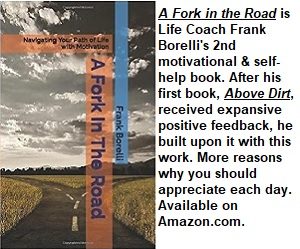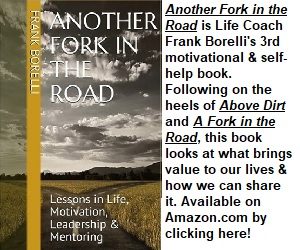You know (literally, many of you know) I love to write. Even as a young boy in my preteen years I enjoyed writing. I realized way back then that I could write anything I could imagine and my writing had to be sufficiently articulate to describe what I was imagining; detailed enough to insure that someone reading it could see in their mind exactly what I was seeing in mine as I wrote it down. I’ve published several books now and very few of them were fiction – and the fiction ones were actually the harder books to write. I have several fiction works in the process now and, oh my goodness but they are a great challenge. For all that, perhaps the biggest writing challenge of all is the one you write as you live your life; it’s the story of your life and you are absolutely the author. But as any writer knows, the author isn’t the only one impacting the story.
 Every author needs an editor. Every author needs a publisher. Every author needs a support team that enables them to spend that time planning, outlining, organizing, writing, scrapping, writing some more, throwing parts away, editing others, hoping, getting frustrated and more. When you think about it, all of those people exist in our lives as well. We might be the author of our own story, but we are not the only character in it. We often plan what we’d like but changes occur, characters change, circumstances change and what we planned is now nothing but fiction while our reality is slightly different (or vastly different depending on what changed).
Every author needs an editor. Every author needs a publisher. Every author needs a support team that enables them to spend that time planning, outlining, organizing, writing, scrapping, writing some more, throwing parts away, editing others, hoping, getting frustrated and more. When you think about it, all of those people exist in our lives as well. We might be the author of our own story, but we are not the only character in it. We often plan what we’d like but changes occur, characters change, circumstances change and what we planned is now nothing but fiction while our reality is slightly different (or vastly different depending on what changed).
The challenge I have as a writer is that sometimes a story can get just so convoluted or frustrating that I want to throw my hands in the air, my typewriter out the window and just give up. Thankfully, I don’t have a typewriter anymore, I need my computer, and I know better than to let my frustrations get the better of me. But I’ve had to sit back on more than one occasion and try to figure out what was causing me the frustration. Did I create a scene that wasn’t quite right? Did I put in too much detail or not enough? Did a character develop in a way that doesn’t add to the story?
 The absolutely coolest part is that once I identify what the challenge is I can go back and edit it. If you compare life to a book being written you can’t really go back and edit your life. The past is what it is and you can’t change it. However, you CAN write your future as you go forward and make the necessary adjustments to correct your past or to change the impact it has on your future.
The absolutely coolest part is that once I identify what the challenge is I can go back and edit it. If you compare life to a book being written you can’t really go back and edit your life. The past is what it is and you can’t change it. However, you CAN write your future as you go forward and make the necessary adjustments to correct your past or to change the impact it has on your future.
What are some of the things you can change? Well, just like in a work of fiction, you can write new characters in or old characters out. If there’s a character that’s not providing what you need to the storyline, write them out. In real life that means giving someone less time or cutting them out of your day completely. In today’s world we hear all about toxic friends or negative enablers. We don’t need them in our day. Toxic friends aren’t friends. Negative enablers encourage bad behaviors, bad thoughts and generally destructive outlooks. Cut them out. Whether you do it politely or harshly is up to you. If I was writing a book and wanted to remove a character in a nice way, they’d find themselves in a circumstance requiring them to move to a different town or city. They’d still exist and I could write them back into a storyline if it benefited me or when I needed them there. On the other hand, I’ve been known to kill a character off and leave no future option for ever having them in the storyline again. HOW they die in the book says something about how badly I want them out of my life. (Yes, we authors do sometimes tend to base characters on people we know and how we treat the characters reflects how we feel about the people they’re based upon.)
 If you find yourself in a job circumstance that isn’t fulfilling for you, doesn’t pay enough, doesn’t challenge you, help you grow or offer advancement opportunity… in the book, you could write a change of circumstance that enables the desired change. It’s not as easy in life but you CAN make those changes. First you have to identify how you want the scene to change and then start making the changes reality. As you write a book you can go back and edit what you want to enable what you want to write in coming chapters. In real life you can’t go back and edit the past but you can use it as a reference for identifying and planning the changes you want to make. In this way, you CAN write the story of your life; you can make changes and modifications and edit as you go.
If you find yourself in a job circumstance that isn’t fulfilling for you, doesn’t pay enough, doesn’t challenge you, help you grow or offer advancement opportunity… in the book, you could write a change of circumstance that enables the desired change. It’s not as easy in life but you CAN make those changes. First you have to identify how you want the scene to change and then start making the changes reality. As you write a book you can go back and edit what you want to enable what you want to write in coming chapters. In real life you can’t go back and edit the past but you can use it as a reference for identifying and planning the changes you want to make. In this way, you CAN write the story of your life; you can make changes and modifications and edit as you go.
For that purpose we should never forget our past, no matter how painful parts of it might be or how stupid we were in a given time frame. It serves as reference material so we can plan the edits and changes we want to make in our future life story. So, where your life is concerned, write well and edit often. Make changes. Don’t be afraid of them. Invite in new characters and write out old ones as necessary. Don’t copy the story of someone else but use their story as reference for yours and learn lessons from them.
